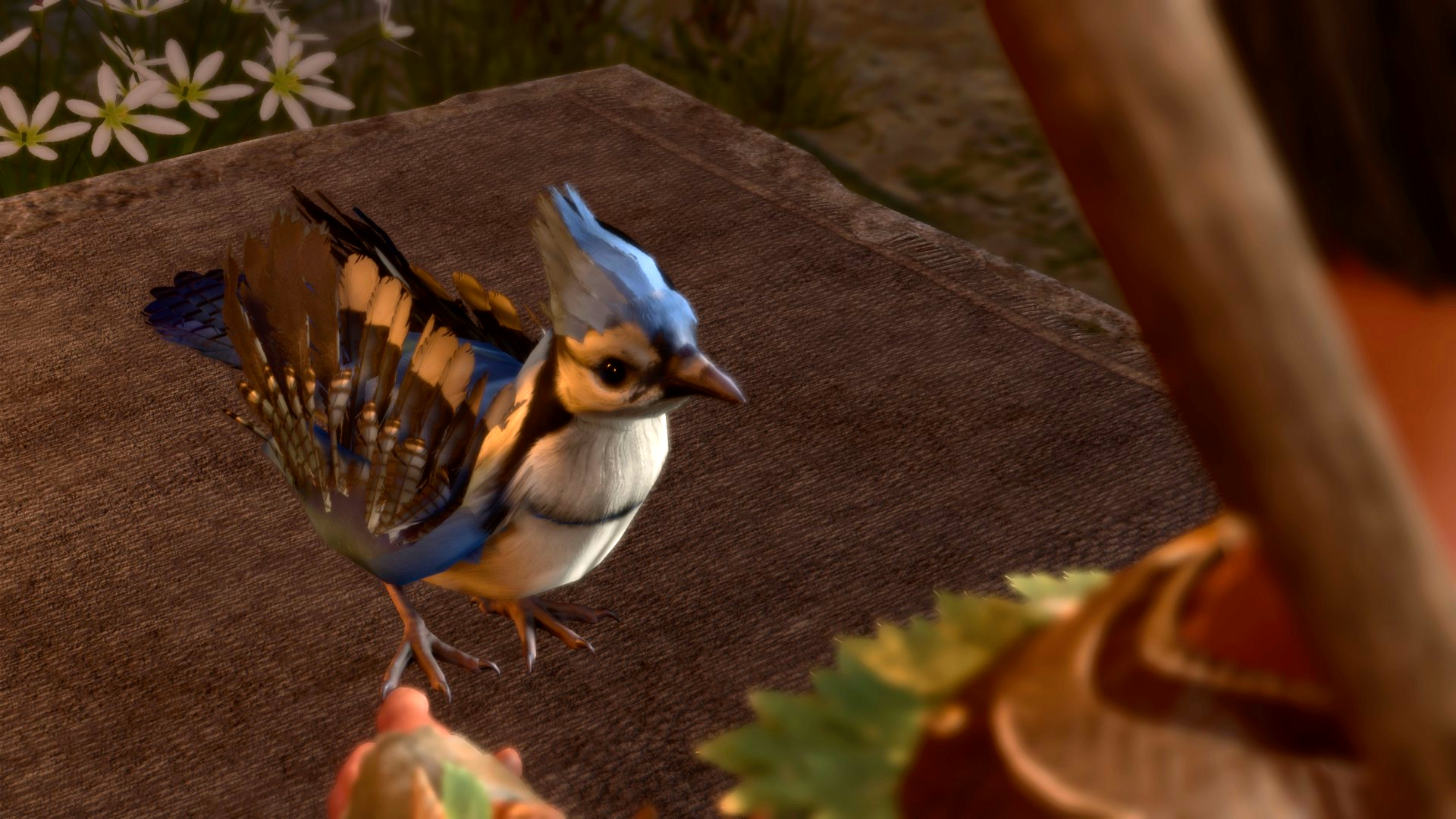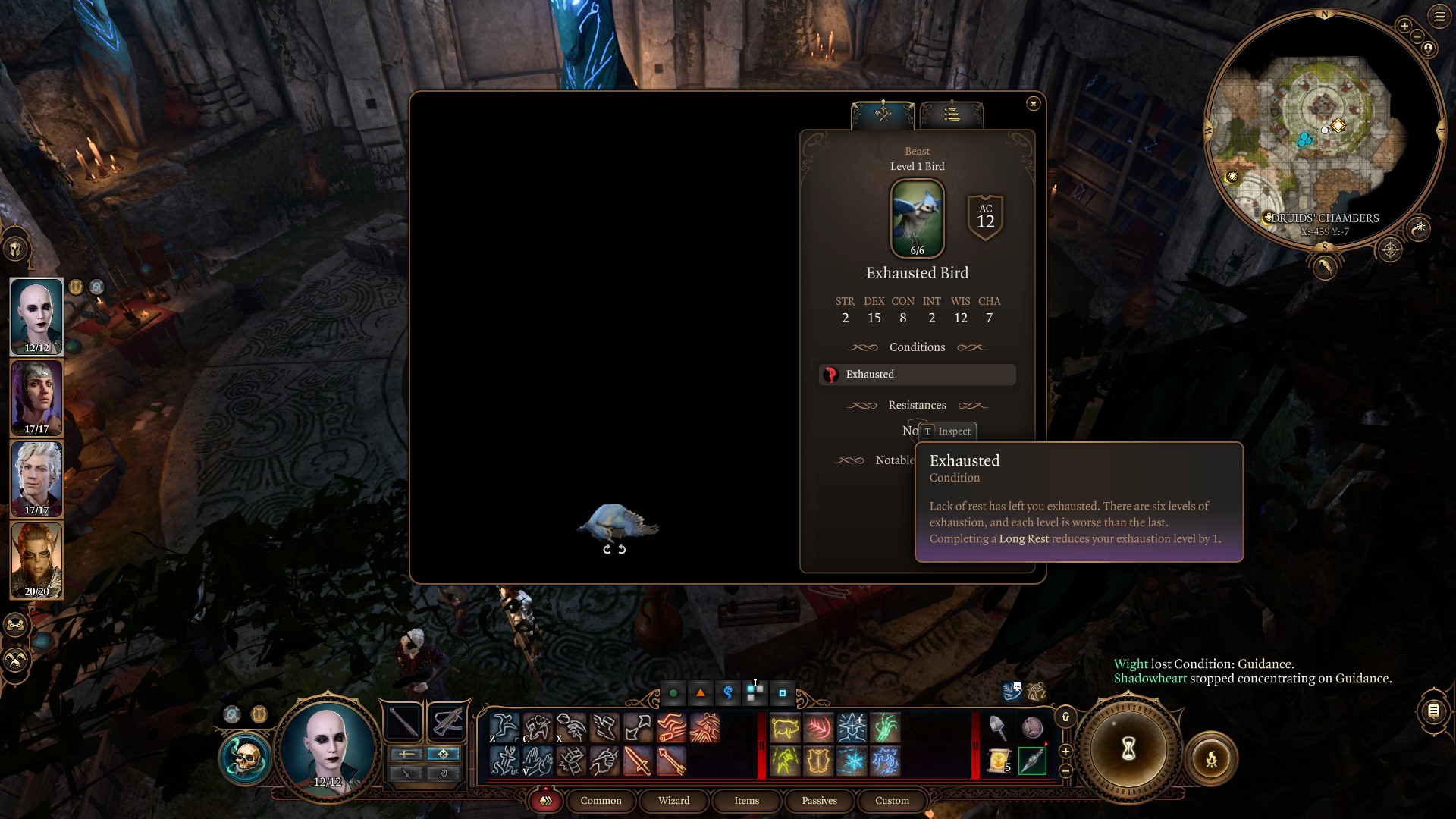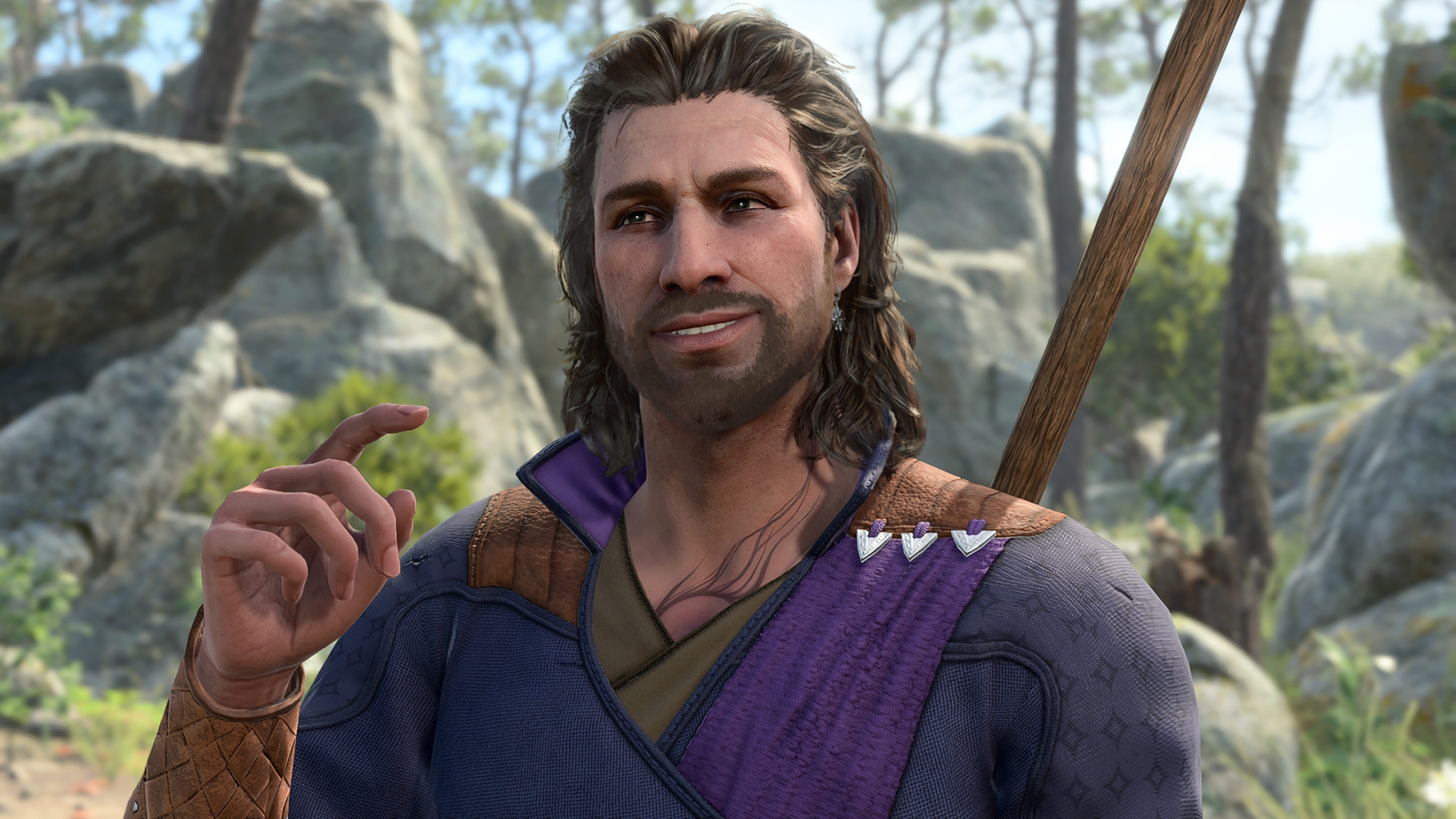D&D's clunky exhaustion rules are in Baldur's Gate 3, but they only apply to one unlucky (and very tired) bird
A little bird told me that Larian were toying with the idea before the game's full release.

As spotted by user When_is_ , on the Baldur's Gate 3 subreddit, a debuff in the full release of the game suggests Larian Studios were toying with the idea of including one of the more punishing mechanics of Dungeons & Dragons 5th edition (D&D 5e)—the tabletop ruleset the game's built on.
As it stands, the only thing that forces you to haul out the bedrolls for a proper night's sleep is a cap on the amount of short rests you can take. Even a party filled with Fighters, Monks and Warlocks have to get some shut-eye eventually.
However, after Nette in Act 1's druid grove heals her feathered friend, it's given a curious "Exhaustion" debuff. I went to verify this myself and, sure enough, it's got the following description: "Lack of rest has left you exhausted. There are six levels of exhaustion, and each level is worse than the last. Completing a Long Rest reduces your exhaustion level by 1."

Considering NPCs don't need to worry about short or long resting, it's clear Larian were toying with the idea of transplanting D&D 5e's exhaustion rules to the game before understandably scrapping them. In case you're unfamiliar, here's the full rundown of why they're a pain in the butt.
When you gain exhaustion in D&D 5e, each point gives you (in order):
- Disadvantage (roll two dice, take the lower) on all ability checks—these are your skill checks like Persuasion, Insight, or Arcana.
- Your movement speed is halved.
- You gain disadvantage on all attack rolls and saving throws—you miss your attacks more, and enemy spells, poisons, and effects are more likely to stick.
- Your hit point maximum is cut in half.
- You stop being able to move at all.
- You just straight-up die.

Baldur's Gate 3 guide: Everything you need
Baldur's Gate 3 tips: Be prepared
Baldur's Gate 3 classes: Which to choose
Baldur's Gate 3 multiclass builds: Coolest combos
Baldur's Gate 3 romance: Who to pursue
Baldur's Gate 3 co-op: How multiplayer works
That first level of exhaustion would already be a massive headache, considering just how many ability checks Baldur's Gate 3 causes you to make. Let alone halved movement speed—and not being able to move at all could just soft-lock your game if you ran out of camping supplies or something.
Deciding when these levels would apply in a video game is tough. The supplementary rules book Xanathar's Guide to Everything suggests that players could make a roll every night that passes without rest to avoid stacking exhaustion levels, but there aren't exactly day and night cycles in Baldur's Gate 3. Maybe you could take a point of exhaustion if you don't have enough food to rest, but even on my new tactician playthrough where camp supply costs are doubled, I'm not running into much trouble.
Keep up to date with the most important stories and the best deals, as picked by the PC Gamer team.
The lack of exhaustion mechanics also considerably changes Baldur's Gate 3's Berserker subclass from its tabletop cousin, which smacks you with a level of exhaustion whenever you finish a frenzied rage—a special kind of rage that gives you an additional attack with your bonus action.
Baldur's Gate 3's version is much kinder. Instead, whenever you enter a rage, each bonus action attack gives you a stacking debuff which reduces your attack rolls by 1, ending when the rage ends. So you do more damage up front, but you gradually become more inaccurate over the course of a brawl.
Ultimately, I'm glad Larian decided to drop the mechanic entirely, save for this strange little debuff on this cute bird. I've only enjoyed playing with it in one campaign, where my DM had us struggling through an arctic environment where shelter was hard to come by. Other than that, it's always just been annoying—capping short rests to twice per day is an elegant solution for a video game's pacing needs.

Harvey's history with games started when he first begged his parents for a World of Warcraft subscription aged 12, though he's since been cursed with Final Fantasy 14-brain and a huge crush on G'raha Tia. He made his start as a freelancer, writing for websites like Techradar, The Escapist, Dicebreaker, The Gamer, Into the Spine—and of course, PC Gamer. He'll sink his teeth into anything that looks interesting, though he has a soft spot for RPGs, soulslikes, roguelikes, deckbuilders, MMOs, and weird indie titles. He also plays a shelf load of TTRPGs in his offline time. Don't ask him what his favourite system is, he has too many.

